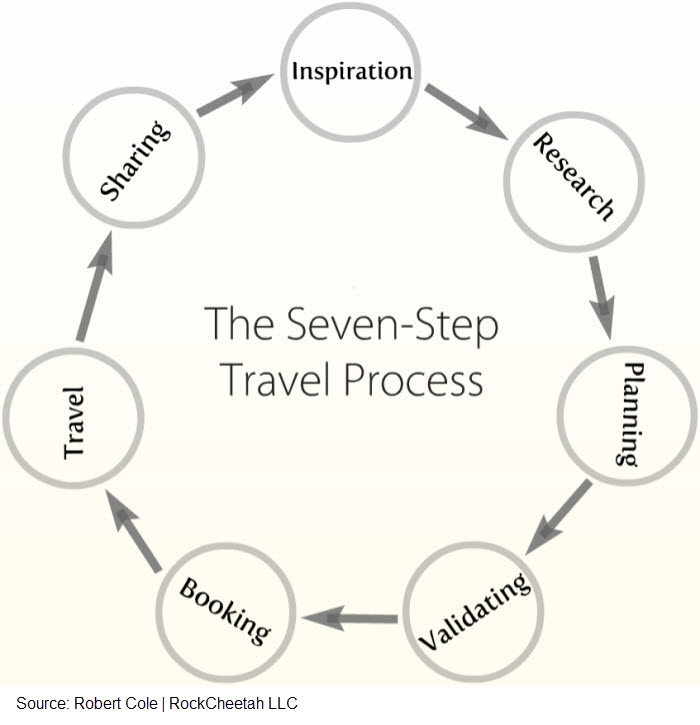I have always disliked those inspirational viral e-mails that are circulated by friends. They always struck me as much too manipulative. I particularly despised the inclusion of superstitious taunts daring the receiver to forward the message, for example, “Forward this message to 10 friends within 24 hours” in order to a) receive unfathomable riches or b) avoid unimaginable despair…
A recent one, that was forwarded by my sister, stuck me as a bit different. It is included here not because the topic deals with a window view, or because the protagonists discussed vacations, but because it deals with the essence of communication.
In reading this parable, it occurred to me that hospitality companies interested in developing successful social media strategies need to focus more on the social and less on the media if they want to create authentic engagement with their audience.
Our story begins –
Two men, both seriously ill, occupied the same hospital room.
One man was allowed to sit up in his bed for an hour each afternoon to help drain the fluid from his lungs. His bed was next to the room’s only window.
The other man was confined to spending all his time flat on his back.
The men talked for hours on end. They spoke of their wives and families, their homes, their jobs, their involvement in the military service, where they had been on vacation. Every afternoon, when the man in the bed by the window could sit up, he would pass the time by describing to his roommate all the things he could see outside the window.
The man in the other bed began to live for those one hour periods where his world would be broadened and enlivened by all the activity and colour of the world outside.
The window overlooked a park with a lovely lake. Ducks and swans played on the water while children sailed their model boats. Young lovers walked arm in arm amidst flowers of every colour and a fine view of the city skyline could be seen in the distance. As the man by the window described all this in exquisite details, the man on the other side of the room would close his eyes and imagine this picturesque scene.
One warm afternoon, the man by the window described a parade passing by. Although the other man could not hear the band – he could see it in his mind’s eye as the gentleman by the window portrayed it with his descriptive words.
Days, weeks and months passed.
One morning, the day nurse arrived to bring water for their baths only to find the lifeless body of the man by the window, who had died peacefully in his sleep. She was saddened and called the hospital attendants to remove the body.
As soon as it seemed appropriate, the other man asked if he could be moved next to the window. The nurse was happy to make the switch, and after making sure he was comfortable, she left him alone.
Slowly, painfully, he propped himself up on one elbow to take his first look at the real world outside. He strained to slowly turn to look out the window beside his bed.
It faced a blank wall.
The man asked the nurse what could have compelled his deceased roommate who had described such wonderful things outside this window.
The nurse responded that the man was blind and could not even see the wall. She said, ‘Perhaps he just wanted to encourage you.’
Epilogue: There is tremendous happiness in making others happy, despite our own situations. Shared grief is half the sorrow, but happiness when shared, is doubled.
And so, our story concludes.
I liked this parable; it made me think – about authenticity, perception, inspiration, generosity, and reliance on others. It also made me wonder about viral communication via social networks, messaging transmitted via social media, and how those relate to personal communication expressed face to face. The common thread is sharing.
Individuals involved in the travel industry hold incredibly powerful positions that can deeply impact the lives of others through personal interaction. They can also influence the actions of a much larger community through social media. To me, the blind man embodied the true spirit of hospitality – he enhanced the life of his roommate; improving a challenging situation by providing comfort and creating inspiration. He did not benefit monetarily or advance his social status, but in a small way, he helped make the world a better place. He shared a gift that enriched a life. His art provided a benefit when science or logic could not present a solution.
I suppose some cynics might say that the blind man in the story was being disingenuous by taking advantage of the other’s infirmity through deception – I disagree. To paraphrase J. K. Rowling, just because something is happening in your mind, does not mean it’s not real. My father was blinded by a stroke for several years before he passed away. The vivid images he related and stories he told were incredibly real – they just weren’t based on information passed down his optic nerve.
The social media revolution has provided travel companies with a transformative opportunity to focus on customer experiences as opposed to product features and special sale pricing. In judging a recent advertising competition, I was surprised to see how many luxury travel companies provided images that were void of customers. Worse yet, in most cases, online media was used to promote an abbreviated online travel experience – the search / shop /book process simply did not reflect the true nature of the travel experience.

The travel cycle may begin with inspiration, but that inspiration is fed by the experiences of others who now share their opinions and recommendations across a global network of online travel sites.
The seven-step travel process is a cycle that rewards operational excellence and superlative service delivery. The process helps transform traveler feedback into travel inspiration when creatively and efficiently communicated by travel suppliers and destinations. This provides an unparalleled opportunity for travel brands to tailor customized products and services that support both the traveler’s expressed requirements and implied needs. This results in the prospect of providing unforgettable travel experiences by anticipating, satisfying and exceeding customer expectations. The same process can also brutally punish exaggerated product claims, service shortfalls, and customer indifference, so authenticity is essential.
The enriching benefit of travel is not in planning the perfect itinerary or booking the least expensive flight, it resides in the travel experience itself and most importantly, the creation of enduring memories. It is these memories, shared personally by travelers to friends and beyond through social networks, that inspires others to pursue a similar path. Technology has enabled user generated content to promote the broad sharing of travel experiences to an extended tribe. Finally, new technologies are just beginning to be used by innovative start-ups to help collect these experiences to help inspire travel across an even more broadly distributed audience.
The operational challenge for hotels, resorts, destinations and all other hospitality organizations, indeed all travel suppliers, is to enrich lives by providing a high quality travel experience – taking considered action to improve travelers’ circumstances and to negate any obstacles that they may face along the way. Many hospitality and online travel company marketing executives now possess the fundamental tools to inspire travel through social media, so the marketing challenge becomes sharing an experiential concept with those that would benefit the most from the experience.
So travel industry, I implore you to enhance and share the experiences of your visitors, guests, employees, suppliers, partners and fellow citizens of your destination – both online and directly within your immediate and virtual communities. Build a tribe. Express the passion that excites you about the power of travel and its ability to enrich lives.
If you pass this gift on to others, you will gain limitless treasures; if you not, I am afraid you will be cursed with unending loneliness. That’s not superstition, that’s how business works in a socially networked world.









